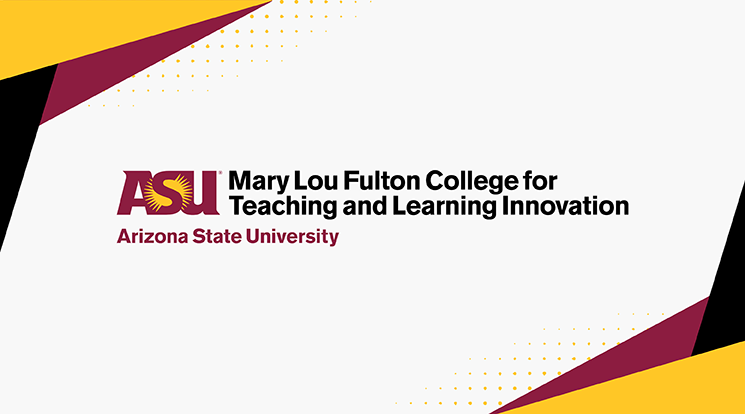Postdoc Elwood using her research PhD to effect change

Kristin Elwood (PhD ’18) is a postdoctoral scholar at two National Science Foundation-funded research centers at Arizona State University. Elwood graduated from ASU in 1997 with a bachelor’s degree in English, which she used to teach high school English and graphic design for 12 years. But when she decided to pursue a doctoral degree, she found her focus had changed. She chose the Mary Lou Fulton Teachers College PhD in Learning, Literacies and Technologies.
Meet Kristin Elwood and learn how she recharted her career through research.
Your career has moved from classroom teacher to academic researcher. What prompted the career change?
As a novice teacher, I thought I could make the most meaningful impact through my students. However, I found myself increasingly mentoring and supporting our incoming new teachers. Though they understood pedagogy, they seemed underprepared for the multitude of tasks incumbent upon teachers. I often saw teachers switch schools, then districts, then just leave altogether. I believed that earning a higher education degree, especially one steeped in research, would provide me with access to a larger audience and a greater opportunity to effect change.
You’re now a postdoc with two NSF research centers at ASU. What do you do at the Center for Bio-mediated and Bio-inspired Geotechnics?
CBBG is tasked with growing the field of biogeotechnics, in which engineers are inspired by nature to provide innovative and sustainable solutions to common problems. I work with the education director, (former MLFTC faculty member) Jean Larson to provide mentorship, curriculum development and support for the teacher participants in our summer Research Experience for Teachers program. (Elwood wrote her dissertation on design thinking instructional problems in collaboration with CBBG.)
And what do you do as a postdoc for the Center for Gender Equity in Science and Technology?
CGEST uses a research-driven approach to providing support for increased engagement in STEM fields by women and girls of color. I have specifically been part of a U.S. Department of Education grant involving the scaling up of a program titled CompuGirls into a year-long high school course titled CompuPower. For this course, we are using a culturally responsive model in which students use technology as a vehicle for building their individual and cultural power as leaders.
How does your degree in learning, literacies and technologies equip you for your research roles?
I was intrigued by the idea of an interdisciplinary PhD program tailored to the research interests of the doctoral student. Through most of my first year, I had a tendency to view myself solely as an educational technology student. However, my cohort was a mix of students more interested in literacy, special education and social justice research. I learned the value of diverse perspectives for developing creative and adaptive solutions. My dissertation advisor and the graduate research faculty with whom I worked often provided extremely diverse learning opportunities. I worked as a technology facilitator with visiting high school teachers from South Sudan, facilitated design thinking workshops, and participated in high-power planning meetings with nonprofit organizations, industry leaders and funding boards across a variety of academic fields. I led poster, round-table, short-paper and workshop presentations at several national conferences each year. I participated in discussions with some of the most well-known experts in our field, and have had opportunities to learn from them and build upon their research.
If someone is considering a career in education but isn't sure of the path they want to take, why might they want to consider research?
The amount of opportunity available for conducting research is immense. By the third year of my program, I had such a wide variety of projects being offered to me that I had to begin to think about what mattered most to me and choose which projects I would be part of. Through those research projects, I was able to directly support large numbers of teachers, who further supported even larger numbers of students. This path has allowed me to create a larger impact on education than I could have before.